

Toward Sustainable, Digital and Economical Solutions
KFUPM – Dhahran, KSA Feb. 17-19, 2024
As the E&P industry transitions itself towards a more sustainable future and a net zero carbon outlook, it seeks innovative technological breakthroughs to ensure the smooth and efficient operation of oil and gas production facilities. The existing models of flow assurance solutions need to be revisited to adapt the industry direction for sustainable energy production as well as economic profitability. This technical symposium at the KFUPM main campus in Dhahran, Saudi Arabia, covers major flow assurance and production topics.
Flow assurance and production optimization require a deeper understanding of chemical, physical, and thermodynamic coupled phenomena that occur during the injection and production of complex fluids. The event is a highly anticipated gathering of experts and professionals in the oil and gas industry. It will link industry professionals and university academicians from diverse but complementary and field-relevant backgrounds. The event aims to provide a platform for industry experts, researchers, academics, and students to exchange knowledge, ideas, and experiences on the latest developments, challenges, and best practices in the field. As such, the event is expected to attract a diverse audience from the upstream oil and gas industry, chemicals manufacturing industry, and other related fields, including professionals, government representatives, academics, researchers, and students from around the globe.
The event will cover a wide range of topics including flow loop and sensing technologies, multiphase flow and metering, fluid mechanics, drilling fluids, cuttings transport, heat transfer, corrosion, gas condensate, gas hydrates, scale formation, wax deposition, and asphaltene management. The workshop will also focus on new technologies, tools, and techniques (e.g., sensors, robotics, and machine learning) for optimizing production processes and reducing operational costs and carbon emissions. It is an excellent opportunity for attendees to gain insights into new research and development initiatives in the industry, learn about the latest trends and challenges, and network with peers and industry subject matter experts (SMEs).
The 2-Day event will feature keynote speeches, technical presentations, a panel session, and poster sessions with ample networking opportunities. Attendees will have the opportunity to share knowledge at technical sessions by distinguished speakers and poster sessions by aspiring students. They will also work together to identify the major operational and technical challenges at breakout sessions, explore new and potential methodologies to address some of the key issues at panel sessions, and potentially uncover hidden opportunities to collaborate and deliver solutions that take the industry into the next energy evolution.
Post-event objectives will include issuing a call for proposals on the identified industry grand challenges in this field. Proposals will be jointly submitted to the industry with in-kind match funding from KFUPM.
Organizing Committee

Mazen Kanj
CPG-KFUPM Consultant

Kiran Gawas
Halliburton
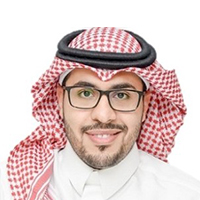
Mohammed Al-Hamad
SLB
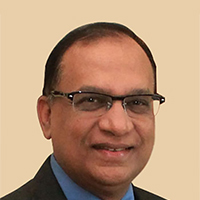
Abul Jamaluddin
EnerGenix Consulting

Shirish Patil
KFUPM
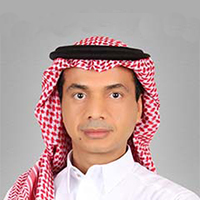
Mohamed Mahmoud
KFUPM

Rahul Gajbhiye
KFUPM
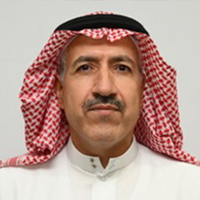
Abdelsalam Alsarkhi
KFUPM
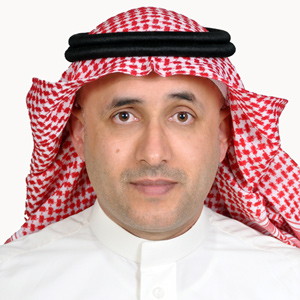
Abdullah Sultan
KFUPM

Jarvis Cline
KFUPM

Rodwan Zweit
ARAMCO

Event Contributors

Oliver C. Mullins
SLB

Bastian Sauerer
SLB

Emmanuel Giannelis
Cornell University

David Yue
Halliburton
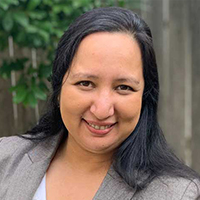
Sibani Biswal
Rice University

Carolyn Koh
Colorado School of Mines

Harvey Yarranton
University of Calgary

Mohamed Mady
Qatar University

Simon Davies
Worley
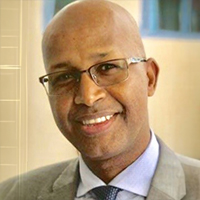
Ahmed Ali
SLB

Srdjan Nesic
Ohio University

Gordon Graham
Scaled Solutions Ltd.

Brian Kinsella
Curtin University

Cem Sarica
University of Tulsa

Eissa Al-Safran
Kuwait University
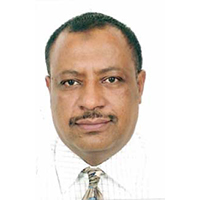
Ibnelwaleed Hussein
Qatar University

Muhammad Arsalan
ARAMCO
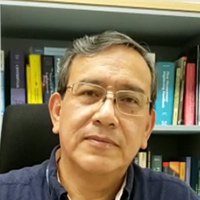
Rigoberto E. M. Morales
UTFPR, Brazil
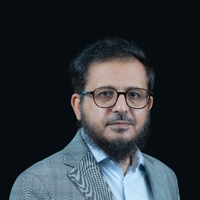
Saad Mutairi
ARAMCO
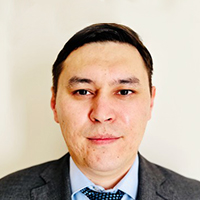
Yermek Kaipov
SLB

Zain Yamani
KFUPM

Maarten de Hoop
Rice University
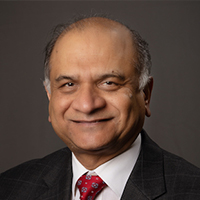
Milind Deo
University of Utah

Mohammad Aziz Rahman
TAMUQ
Registration
The Flow Assurance Technology Symposium, 2024, consists of two parts with separate registration.
Please register for one or both components below.
Flow Assurance Technology Symposium
Main Event - February 18th - 19th
Technical sessions, workshops, and more.
To register for the symposium event, please
Note: Registration may appear sold out, however, please add yourself to the waiting list and stay tuned for your opportunity to participate in the event!
The venue is Building 78 within KFUPM campus. Click the image below for directions.
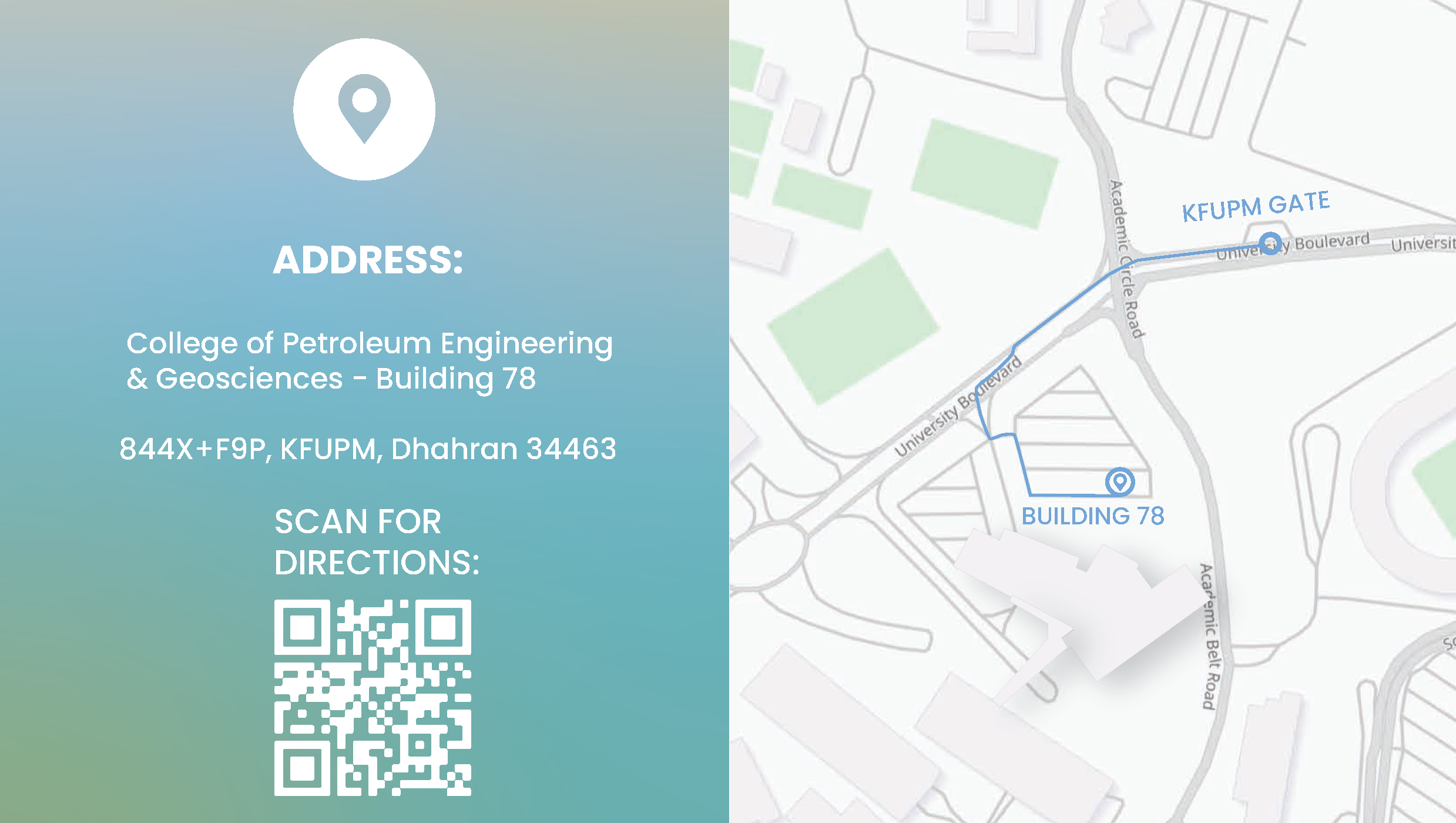
Program Details - February 18th - 19th
FEBRUARY 18TH
Summary
An engaging series of technical talks, across four sessions, will overview the latest technology innovations and opportunities in the fields of production chemicals, organic solids, scales & corrosion, and multiphase flow. A mid-day poster session provides time for networking and reviewing the latest work from Ph.D. students and postdoc researchers from research groups around the world. The sessions provide a basis for the discussions of the following day.
08:00 - 08:30
Introduction
08:30 - 10:00
Technical Session -
Production Chemicals for Enhanced Flow Assurance – Harnessing the Power of the Digital Space and the Molecular Scale
Co-Chairs: Mohammed Al-Hamad (SLB), Kiran Gawas (Halliburton)
08:30 - 08:50
Recent trends in Production Chemistry - Sustainability and Digital Aspects
Bastian Sauerer (SLB)
08:50 - 09:10
Targeted and Delayed Delivery of Chemicals in Oil Reservoirs
Emmanuel Giannelis (Cornell University)
09:10 - 09:30
Scale Control Challenges in US Shale Production
David Yue (Halliburton)
09:30 - 09:50
Application of Nanofluids to Remediate Asphaltene Deposition
Sibani Biswal (Rice University)
10:00 - 11:00
Technical Session -
Flow Hindrance Due to Precipitation and Deposition of Organic Solids
Co-Chairs: Abul Jamaluddin (EnerGenix Consulting), Shirish Patil (KFUPM)
10:00 - 10:20
Interfacial Controls in Gas Hydrate Flow Assurance Management
Carolyn Koh (Colorado School of Mines)
10:20 - 10:40
Some Insights from Asphaltene Flow Assurance Fundamentals
Harvey Yarranton (University of Calgary)
10:40 - 11:00
Environmentally Acceptable Phosphonates For Oilfield Scale Management
Mohamed Mady (Qatar University)
11:00 - 11:30
Opening Ceremony under the patronage of Dr. Muhammad Al-Saggaf, KFUPM President
11:30 - 13:30
Lunch & Poster Session
13:30 - 15:00
Technical Session -
Scales and Corrosion in The Oil and Gas Industry
Co-Chairs: Rahul Gajbhiye (KFUPM) and Ibnelwaleed Hussein (Qatar University)
13:30 - 13:50
Dense Phase Corrosion of Carbon Steel in CO₂ Transportation (Online)
Srdjan Nesic (Ohio University)
13:50 - 14:10
Single Step Sulfate Scale Removal
Mohamed Mahmoud (KFUPM)
14:10 - 14:30
Advances in Understanding Fluid Flow Dynamics and the Kinetics
Associated with Surface Scaling
Gordon Graham (Scaled Solutions Ltd.)
14:30 - 14:50
Chemical and Mechanical Properties of Oilfield Corrosion Inhibitors - Treatment of Under Deposit Corrosion
Brian Kinsella (Curtin University)
15:00 - 16:30
Technical Session -
Modeling and Experimentation of Multiphase Flow: Slugging, Metering, and Transportation for Empowering the Economic, Environmental, and Digital Solutions
Co-Chairs: Yermek Kaipov (SLB), Abdelsalam Alsarkhi (KFUPM)
15:00 - 15:20
A Discussion on Flow and Flow Assurance of the Transport and Injection of CO₂ and Impurities
Cem Sarica (University of Tulsa)
15:20 - 15:40
Eissa Al-Safran (Kuwait University)
15:40 - 16:00
Unmasking the Mystery: Demystifying Multiphase Metering Challenges and Breakthroughs
Muhammad Arsalan (Saudi Aramco)
16:00 - 16:20
Experimental Characterization of Horizontal Two-Phase Slug Flow with High Density Gases
Rigoberto Morales (UTFPR - Federal University of Technology, Paraná)
FEBRUARY 19TH
Summary
The second day program provides a unique opportunity for an open discussion among a leading group of attending experts and technology innovators. This moderated forum is targeted to identify challenges, rank those challenges, and brainstorm potential solutions with an eye towards industry-academia partnerships. Distinguished discussion leaders will structure the conversation while taking collective notes and the day’s findings will be summarized and presented at the wrap-up session.
08:00 - 09:30
Panel Session -
Navigating the Future of Flow Assurance: A Panel Discussion Addressing the Challenge Areas of Today and the Technology Readiness for Tomorrow
Moderator: Abdullah Sultan (KFUPM)
Panelists:
Oliver Mullins (SLB)
Maarten de Hoop (Rice University)
Milind Deo (University of Utah)
Saad Mutairi (Saudi Aramco)
Zain Yamani (KFUPM)
09:30 - 10:30
Production Chemicals Breakout
Discussion Leaders: Bastian Sauerer (SLB)
Sibani Biswal (Rice University)
10:30 - 11:30
Organic Solids Breakout
Discussion Leaders: Ahmed Moge Ali (SLB)
Dr Simon Davies (Worley)
11:30 - 13:30
Lunch & Poster Session
13:30 - 14:30
Scales & Corrosion Breakout
Discussion Leaders: David Yue (Halliburton)
Gordon Graham (Scaled Solutions Ltd)
14:30 - 15:30
Multiphase Flow Breakout
Discussion Leader: Muhammad Arsalan (Saudi Aramco)
Mohammad Aziz Rahman (TAMUQ)
15:30 - 16:30
Wrap-up Session
Session Details
SESSION ON PRODUCTION CHEMICALS
Production Chemicals for Enhanced Flow Assurance – Harnessing the Power of the Digital Space and the Molecular Scale
The design, development, and optimization of production chemicals play a crucial role in mitigating various flow assurance challenges, such as hydrate formation, wax and asphaltene deposition, scale buildup, corrosion, fracturing fluids, and formation damage caused by drilling fluids. Similarly, the increasing demand for energy and the growing importance of environmental responsibility have made it imperative for the oil and gas industry to focus on sustainable, digital, innovative, and economical solutions in the field. This session will present the latest advancements in production chemicals, exploring innovative approaches that enhance efficiency, reduce environmental impact, and optimize costs in various applications.
Key topics to be covered in this session include:
1. Novel Production Chemicals: The discovery, synthesis, and evaluation of new production chemicals that exhibit superior performance in addressing flow assurance challenges, with a focus on their effectiveness, compatibility, and environmental impact. This includes environmentally friendly (green) production chemicals, such as biodegradable and low-toxicity alternatives, that significantly reduce environmental footprints while maintaining efficacy in flow assurance.
2. Digitalization and Data-driven Optimization: The adoption of advanced digital technologies, such as molecular modeling, machine learning, and robotics, in the application, monitoring, management, and optimization of production chemicals for improved flow assurance strategy and outcomes.
3. Integrated Flow Assurance Strategies: The adoption of holistic flow assurance strategies that synergistically combine production chemicals with other mitigation techniques, such as mechanical solutions, process control, and monitoring systems, to achieve optimal outcomes.
4. Case Studies of Cost-Effective Formulations: Real-world examples from the successful implementation of innovative production chemical solutions in various oil and gas operations, highlighting the challenges faced, strategies employed, and lessons learned. In particular, the session targets the exploration of novel production chemical formulations and application strategies that minimize costs without compromising operational efficiency or environmental sustainability.
By attending this session, participants will gain a comprehensive understanding of the latest trends and innovations in production chemicals for flow assurance. They will be equipped with valuable knowledge to make informed decisions and implement cutting-edge solutions that optimize flow assurance performance in upstream operations.
SESSION ON SCALES AND CORROSION
Scales and Corrosion in The Oil and Gas Industry
Scales and corrosion pose challenges in the oil and gas industry, causing equipment damage, reduced efficiency, and safety risks. Effective management involves risk assessment, proper design, material selection, maintenance programs, and preventive measures. The session will present the latest development, innovative approaches, and industry challenges on mitigating scale and corrosion for flow assurance in the oil and gas industry.
The key topics to be covered in this session include:
1. Scale Formation and Corrosion (Experimental, Modeling, and Data-Driven Approaches): Scale formation involves the deposition of inorganic materials on surfaces, while corrosion is the deterioration of metal due to chemical reactions. Understanding factors like water chemistry, temperature, and pressure helps manage scale issues. Various corrosion mechanisms exist, requiring effective control strategies. Modeling and simulation aid in predicting scale deposition and corrosion progression, optimizing conditions, and evaluating mitigation strategies.
2. Scale and Corrosion Monitoring and Control Techniques: Monitoring techniques are crucial to identify and assess scale and corrosion issues. Control techniques such as pigging, chemical treatments, and mechanical cleaning help remove or prevent scales and corrosion. A comprehensive approach is necessary to effectively manage scales and corrosion across production and processing operations.
3. Impact of Scale & Corrosion on Flow Assurance: Scale and corrosion can cause flow restrictions, pressure drops, reduced production rates, and potential blockages, leading to maintenance, downtime, and safety risks. These can impair heat transfer efficiency and system performance. Managing scale and corrosion is vital for uninterrupted flow, optimal operational efficiency, cost reduction, and maintaining system integrity.
4. Scale and Corrosion Mitigation (Case Studies): Case studies and cost-effective solutions for scale and corrosion mitigation in the oil and gas industry offer valuable insights to operators. By analyzing real-world scenarios, these studies provide effective strategies, lessons learned, and the performance of mitigation techniques like inhibitors, coatings, and maintenance practices.
By attending this session, participants will gain a comprehensive understanding of scales and corrosion in the oil and gas industry. The session provides insights into scale formation and corrosion, associated challenges, and effective solutions and monitoring techniques to predict and mitigate the scale formation and corrosion challenge in flow assurance.
SESSION ON MULTIPHASE FLOW
Modeling and Experimentation of Multiphase Flow: Slugging, Metering, and Transportation for Empowering the Economic, Environmental, and Digital Solutions
The proper understanding of Multiphase flow challenges and flow assurance, in connection with digital data management and ecological impact, is of great necessity for the energy industry. Effective innovative production solutions to technically challenging problems in the E&P will be the core discussion of this session.
Key topics to be covered in this session include:
1. Multiphase flow: Multiphase flow is an instantaneous flow of more than two phases (oil, water, gas, solids) from oil and gas reservoirs to production facilities, transported through pipelines and manifolds. The increased global energy demand and the development of unconventional resources augment challenges to production, transportation (including CO2 mobility), processing, and measurement of multiphase flow.
2. Multiphase Flow Modeling, Metering, and Optimization: Handling and measuring multiphase flow is far more complex than single-phase flow, thus prediction becomes a challenge. The use of advanced modeling techniques and data analytics with machine learning will help optimize the production and transport of complex fluids in a complex environment (e.g., vibration, slugging flow, flow restriction caused by scale build-up, wax, and hydrates). Additionally, the need for a Multi-Phase Flow Meter is a strategy to be considered to allow early detection of water and solids which heavily cause flow assurance problems.
3. Case Studies for multiphase flow solutions and implementations: The session will present field-ready technologies and successful innovative application of metering solutions in complex multiphase flow applications and other high-level solutions for production problems that reduce costs and maintain a high level of efficiency and sustainability.
By attending this session, participants will be more informed of the latest technological advancements related to multiphase flow, slugging, and metering for flow assurance applications.
SESSION ON ORGANIC SOLIDS DEPOSITION
Flow Hindrance Due to Precipitation and Deposition of Organic Solids
Assuring unimpeded flow from the reservoir to the refinery has a game-changing impact on field development. Unnecessary investments can be avoided when engineers can characterize and understand the fluid phase behavior controlled by the flow dynamics and production chemistry in reservoirs, wellbores, surface facilities, and flow lines. This session addresses the measurement and modeling of petroleum fluid properties and organic solids. The session will include various types of organic solids that are precipitated and deposited as a result of pressure, temperature, and compositional changes due to injection fluids, production changes and pose disruption to production and potentially well shut down.
The session will include topics related to:
1. Diagnostics for prediction and management of asphaltenes, wax, hydrates, emulsions, and sludges.
2. Strategies for mitigation and remediation of production impairment due to organic deposition.
3. Application of artificial intelligence along with digital technologies to understand, forecast, and predict production behavior along with the anticipation of unplanned shutdown due to organic solids precipitation and deposition leading to sustainability.
Session attendees will engage in a thoughtful discussion on the challenges associated with organic solids and gain a deeper comprehension of these challenges, as well as a broader appreciation of the cutting-edge methodologies available for dealing with them effectively.
PANEL SESSION
Navigating the Future of Flow Assurance: A Panel Discussion Addressing the Challenge Areas of Today and the Technology Readiness for Tomorrow
As the oil and gas industry faces mounting challenges in a rapidly evolving landscape, the need for sustainable, digital, and economical solutions in flow assurance has never been more vital. This panel session brings together a diverse group of experts from academia, industry, and technology providers to identify the key challenge areas and discuss the latest innovations and strategies in achieving efficient, eco-friendly, and cost-effective flow assurance operations.
Key themes to be explored during the panel discussion include:
1. Digital Transformation: The implementation and integration of advanced digital technologies, such as artificial intelligence, machine learning, advanced computational modeling, and robotics to optimize flow assurance operations, enhance decision-making, and enable predictive maintenance.
2. Sustainability: The integration of environmentally conscious practices and the adoption of green production chemicals, considering their effectiveness, regulatory compliance, and long-term environmental impact.
3. Economic Viability and Cost Optimization: The development and application of innovative methodologies for cost analysis, resource allocation, and risk management in flow assurance operations, emphasizing the balance between operational efficiency and cost reduction.
4. Industry Collaboration and Knowledge Sharing: The importance of fostering collaboration between operators, service providers, technology developers, and academia to promote partnerships, knowledge sharing, best practices, and the adoption of innovative, sustainable, and cost-effective flow assurance solutions.
5. Hydrogen Economy: The growing market of hydrogen as a source of clean energy comes with critical challenges associated with its production, storage, and transportation. Multiphase flow can be difficult to control considering problems like corrosion, erosion, cavitation, diffusion into metals, and vibration.
By attending this panel session, participants will gain valuable insights into the key challenge areas in flow assurance and potential innovative solutions that promote sustainability, digitalization, and cost optimization.
BREAKOUT SESSIONS
Key Challenges: Identification, Ranking, and Potential Methodologies
This Symposium will present four breakout sessions focused on pressing challenges in Flow Assurance in O&G production. These interactive sessions aim to bring together experts, stakeholders, and technology innovators to identify, rank, and discuss critical issues currently faced in the realm of Production Chemicals, Organic Solids, Scales & Corrosion, and Multiphase Flow. At these breakout sessions, attendees will engage in dynamic conversations with like-minded professionals in the E&P sector.
Discussion leaders, both seasoned professionals from the E&P industry, will guide the conversation and facilitate a lively exchange of ideas, experiences, and potential venues for mitigation at each of these breakout sessions. Each session will be structured into three key segments:
1. Identification of Challenges: Participants will brainstorm and identify the most pertinent challenges in the field. Issues may range from environmental concerns, operational difficulties, regulatory compliance, cost-effectiveness, novel applications, and more.
2. Ranking of Challenges: Attendees will collaborate to rank the identified challenges based on their perceived impact, urgency, and potential for industry-wide disruption. This ranking process will provide valuable insights into the prioritization of resources and attention toward addressing these challenges.
3. Discussion and Solution Exploration: In the final segment, participants will engage in an open dialogue to discuss potential strategies, best practices, and potential innovative methodologies to address some of the top-ranked challenges. The goal is to foster industry-academia collaborations and knowledge-sharing to drive progress and improvement in the field.
By attending any of the breakout sessions, participants will gain a comprehensive understanding of the current landscape of the subject area of the session, deepen their knowledge of the most pressing challenges, and contribute to shaping the future of the industry. The breakout sessions will conclude with a wrap-up session to highlight the takeaways from the symposium and summarize to all attendees the key challenge areas in Flow Assurance.
Short Course - February 17th
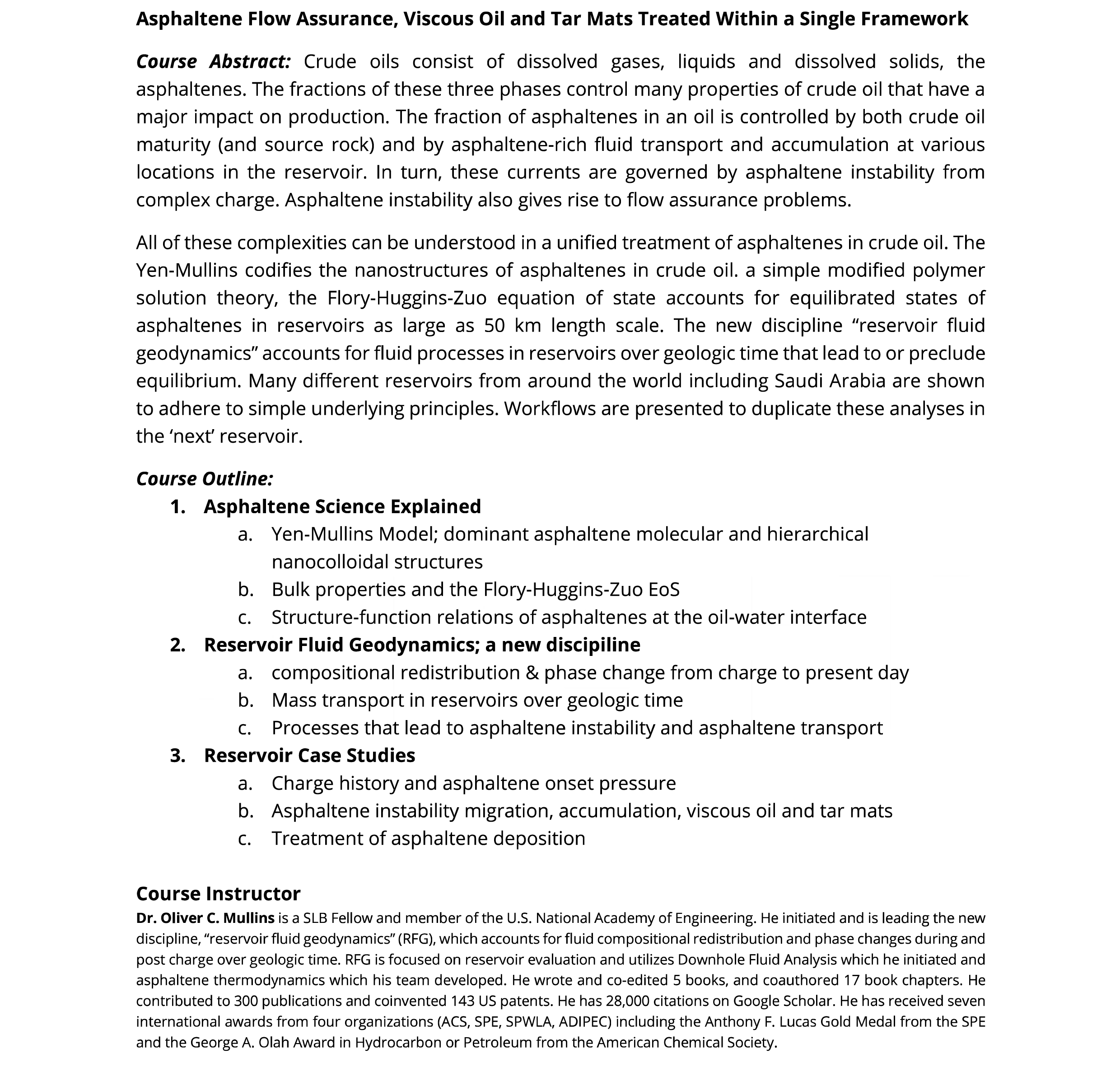
Program Summary
Feb. 17,2024
SHORT COURSE
8:00 - 11:30
ASPHALTENE FLOW
ASSURANCE:
Reservoir Fluid
Geodynamics with
Case Studies
Feb. 18,2024
OVERVIEWING TECH
INNOVATIONS
8:00 - 8:30
Introduction
8:30 - 10:00
Production Chemicals
10:00 - 11:00
Organic Solids
11:00 - 11:30
Opening Ceremony -
Dr. Muhammad Al-Saggaf,
KFUPM President
11:30 - 13:30
Lunch & Poster Session
13:30 - 15:00
Scales & Corrosion
15:00 - 16:30
Multiphase Flow
Feb. 19,2024
IDENTIFYING
CHALLENGE AREAS
8:00 - 9:30
Panel Session
9:30 - 10:30
Production Chemicals
Breakout
10:30 - 11:30
Organic Solids
Breakout
11:30 - 13:30
Lunch &
Poster Session
13:30 - 14:30
Scales & Corrosion
Breakout
14:30 - 15:30
Multiphase Flow
Breakout
15:30 - 16:30
Wrap-Up Session
